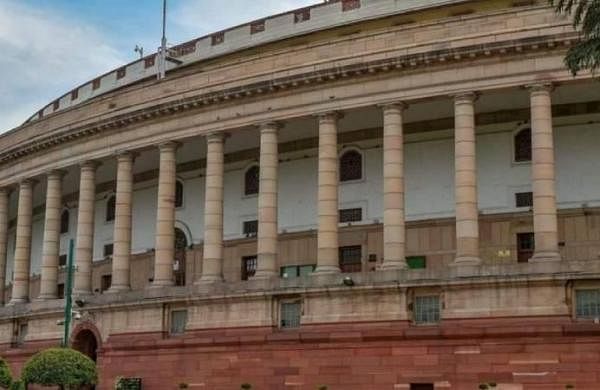Express News Service
NEW DELHI: The Joint Parliament Committee on the Jan Vishwas (Amendment of Provisions) Bill, 2022, introduced last December, is scheduled to submit the report in the upcoming budget sessions in the Lok Sabha. The Bill is intended to amend 42 Acts, including four environment-related acts to decriminalise certain offences, revision of fines and penalties, and appointment of adjudicating officers to ensure ease of doing business.
However, the environmental-legal organisation, Vidhi Centre for Legal Policy (VCLP) – an independent environment legal think tank – has submitted its concerns to the committee, stating that the proposed dilution would encourage damage to the forest, biodiversity and other natural resources.
The Bill sought to amend laws such as the Indian Forest Act, 1927 (IFA), Environment (Protection) Act 1986, Air (Prevention and Control of Pollution) Act 1981 (Air Act), and Public Liability Insurance Act 1991. For instance, for violating Section 37 of the Air Act, the minimum penalty is reduced by 90% (from Rs 1 lakh to Rs 10,000), and the maximum penalty is reduced by 85% (from Rs 1 crore to Rs 15 lakhs). Similarly, the proposed amendments retain the highest fine amount of Rs 500, prescribed under the IFA since 1927.
Experts feel that the penalty must be commensurate with violations. “Instead of setting a high penalty amount in the legislation to deter offenders, the government is doing the opposite to it,” says Debadityo Sinha, a researcher with VCLP.
In its submission, VCLP pointed out some global best practices and other domestic regulations, which include base penalty, unlawful gains and environmental damages, to calculate the penalty and punishment.The proposed Bill, however, blankets the removal of imprisonment for violating environmental laws.“This provision might make offenders feel they can act with impunity and not provide enough deterrence, especially for large corporations profiteering from the offence,” said Sinha.
The VCLP also pointed out that the Bill also proposed a reduction of drastic penalties for repeat offenders and serious lacuna in the appointment of adjudicating officers for settling legal disputes out of court.“The Bill limits the meaning of an adjudicating officer to a Joint Secretary to the Centre or a Secretary to the state government,” says VCLP submission.
NEW DELHI: The Joint Parliament Committee on the Jan Vishwas (Amendment of Provisions) Bill, 2022, introduced last December, is scheduled to submit the report in the upcoming budget sessions in the Lok Sabha. The Bill is intended to amend 42 Acts, including four environment-related acts to decriminalise certain offences, revision of fines and penalties, and appointment of adjudicating officers to ensure ease of doing business.
However, the environmental-legal organisation, Vidhi Centre for Legal Policy (VCLP) – an independent environment legal think tank – has submitted its concerns to the committee, stating that the proposed dilution would encourage damage to the forest, biodiversity and other natural resources.
The Bill sought to amend laws such as the Indian Forest Act, 1927 (IFA), Environment (Protection) Act 1986, Air (Prevention and Control of Pollution) Act 1981 (Air Act), and Public Liability Insurance Act 1991. For instance, for violating Section 37 of the Air Act, the minimum penalty is reduced by 90% (from Rs 1 lakh to Rs 10,000), and the maximum penalty is reduced by 85% (from Rs 1 crore to Rs 15 lakhs). Similarly, the proposed amendments retain the highest fine amount of Rs 500, prescribed under the IFA since 1927.googletag.cmd.push(function() {googletag.display(‘div-gpt-ad-8052921-2’); });
Experts feel that the penalty must be commensurate with violations. “Instead of setting a high penalty amount in the legislation to deter offenders, the government is doing the opposite to it,” says Debadityo Sinha, a researcher with VCLP.
In its submission, VCLP pointed out some global best practices and other domestic regulations, which include base penalty, unlawful gains and environmental damages, to calculate the penalty and punishment.
The proposed Bill, however, blankets the removal of imprisonment for violating environmental laws.
“This provision might make offenders feel they can act with impunity and not provide enough deterrence, especially for large corporations profiteering from the offence,” said Sinha.
The VCLP also pointed out that the Bill also proposed a reduction of drastic penalties for repeat offenders and serious lacuna in the appointment of adjudicating officers for settling legal disputes out of court.
“The Bill limits the meaning of an adjudicating officer to a Joint Secretary to the Centre or a Secretary to the state government,” says VCLP submission.





